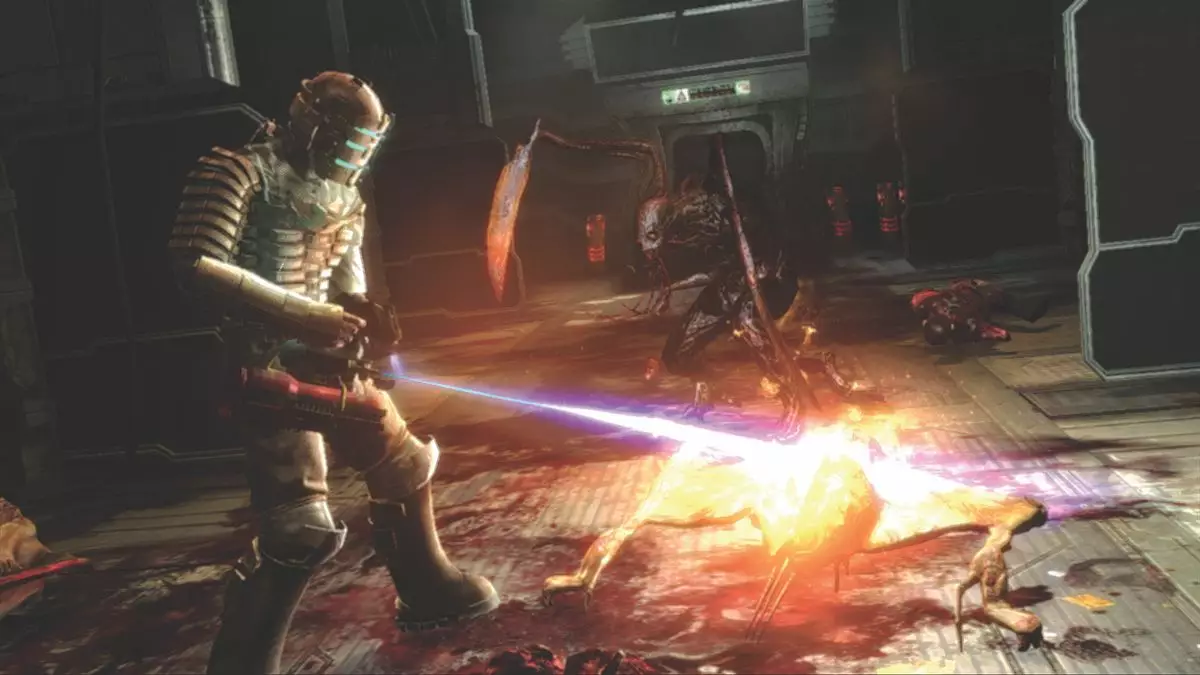The Dead Space series stands as a pillar of modern horror video gaming—illuminating the genre with its masterful blend of suspense, psychological terror, and intricate storytelling. Despite the remarkable success of the recent remake, the creators behind the original trilogy find themselves in a quandary: their pitch for a fourth installment, Dead Space 4, was met with disinterest from Electronic Arts (EA). As vocalized by Glen Schofield and his co-creators in a candid discussion, this rejection raises broader questions about the future of beloved franchises in an industry riddled with uncertainty.
In a recent interview, Schofield, Christopher Stone, and Bret Robbins reflected on their attempt to revive Dead Space. Their comments reveal a stark contrast between the enthusiasm of the creators and the cautious pragmatism exhibited by EA. “We tried actually, the three of us,” Schofield stated, which illustrates a collective yearning from the original team to return to the universe they meticulously built. However, EA’s response—”we’re not interested right now”—hints at a dismissive approach toward new creative undertakings.
The gaming industry is currently navigating a climate of risk aversion. Stone’s observation, “the industry’s in a weird place right now,” underscores a prevalent concern: the reluctance to venture into uncharted territories. This apprehension not only stifles innovation but also leaves fans of iconic franchises like Dead Space yearning for more. The creators’ willingness to explore further, even amid rejection, reflects their unwavering commitment to their craft.
The discussions surrounding Dead Space 4 aren’t merely confined to the franchise itself but rather exemplify a larger trend in the gaming world. With escalating production costs and a volatile marketplace, the suits at EA are firmly anchored to data-driven decision-making, which often disregards the creative ambitions of visionary developers. Stone’s comment hints at a systemic issue: how do companies balance financial safety with the artistic instincts that initially birthed these beloved franchises?
The crux of this dilemma is the industry’s hesitation to greenlight projects that might not guarantee instant success. Dead Space isn’t the only series feeling the brunt of this cautiousness; many promising game ideas languish in development hell due to an overpowering sense of indecision among publishers. Return to form projects, especially those steeped in nostalgia, often face significant hurdles unless bolstered by an existing framework or a proven track record.
The Legacy of Dead Space: A Cautionary Tale
Despite the challenges faced in bringing Dead Space 4 to life, one can’t ignore the cultural and artistic significance of the original trilogy. Dead Space, with its atmospheric tension and memorable lore, played a significant role in shaping contemporary horror narratives in video games. Schofield’s subsequent venture, The Callisto Protocol, may have echoed some elements of their earlier work, but it failed to capture the same magic, showcasing how difficult it is to recapture the essence of a beloved franchise without its original creative team.
The disappointing reception of The Callisto Protocol stands as a testament to the difficulty of evolving beyond established paradigms. Critics remarked on its ambitious design yet cited a disheartening combat system that undercut the overall experience. This duality of aspiration and execution highlights a key struggle within the industry—striving to innovate while holding on to what made the originals compelling.
As we linger in the aftermath of these rejections, hope still flickers for the return of Dead Space. The yearning expressed by its original creators hints that they have ideas simmering beneath the surface, pointing towards a desire to craft a new chapter within this chilling universe. As they continue to explore new avenues—Robbins working on projects like Absurd Ventures—it’s crucial that EA and other industry leaders reconsider their approach toward fostering creativity.
The echoes of the past linger strongly in the minds of gamers, harmonizing with calls for revitalization of unforgettable experiences such as Dead Space. The franchise’s potential for rebirth lies not just in its nostalgia but also in its capacity to surprise and captivate a new generation of players. EA’s willingness to listen to the original creators could ultimately pave the way for a project that not only honors what came before but also carves out a pathway toward an imaginative and terrifying future.

